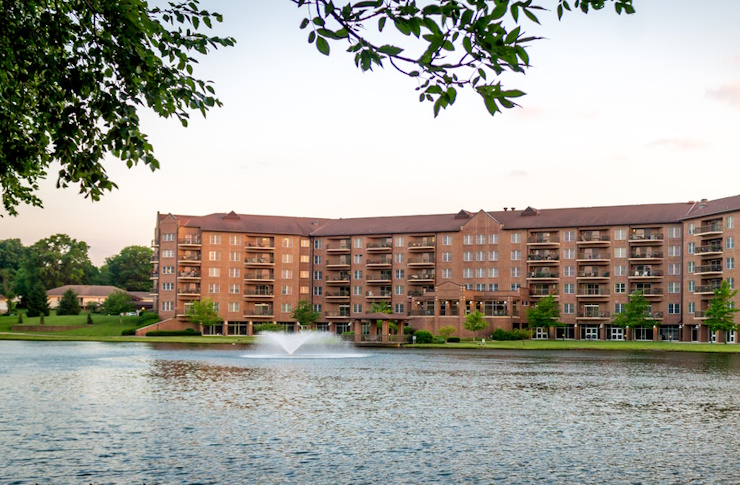Elder Cottages: A Viable Housing Option for Seniors
As seniors seek suitable housing solutions, elder cottages emerge as a compelling option, balancing independence with family proximity. These accessory dwelling units meet the needs of aging adults in challenging housing markets. Examining benefits, financial implications, and planning considerations reveals how elder cottages offer a thoughtful and practical choice within diverse senior housing options.

Exploring Elder Cottages for Seniors: What Are They?
Elder cottages are compact, fully functional living spaces designed specifically for senior residents. These structures typically range from 300 to 800 square feet and include essential amenities such as a bedroom, bathroom, kitchenette, and living area. Unlike traditional home additions, elder cottages are separate structures that can be either permanently built or temporarily placed on a property.
The concept addresses several challenges facing modern families caring for aging relatives. Rather than choosing between costly assisted living facilities or having seniors move into the main family home, elder cottages provide a middle-ground solution that preserves everyone’s independence while ensuring help is readily available when needed.
These units can be customized with senior-friendly features such as grab bars, ramps, wider doorways, and emergency call systems. Many modern designs also incorporate smart home technology to monitor safety and provide peace of mind for family members.
Benefits of Elder Cottages for Senior Living
Elder cottages offer numerous advantages for both seniors and their families. The primary benefit is maintaining family connections while preserving personal space and autonomy. Seniors can continue living independently without the isolation that sometimes accompanies aging, while family members can provide assistance without compromising their own living arrangements.
From a care perspective, elder cottages enable family members to monitor their elderly relatives’ wellbeing more closely. This proximity can be crucial for seniors with health conditions requiring regular check-ins or medication reminders. The arrangement also facilitates intergenerational bonding, allowing grandparents to maintain meaningful relationships with grandchildren.
Additionally, elder cottages can provide rental income potential in the future. Once the senior resident no longer needs the space, families can convert the cottage into a rental unit, generating supplementary income. This financial flexibility makes the initial investment more attractive from a long-term perspective.
Considerations for Elder Cottage Living
Before pursuing an elder cottage, families must carefully evaluate several important factors. Zoning regulations and building permits are primary considerations, as not all residential areas allow accessory dwelling units. Local authorities may have specific requirements regarding setbacks, maximum size, parking provisions, and utility connections.
The senior’s current and future care needs should also be thoroughly assessed. While elder cottages work well for independent seniors or those requiring minimal assistance, they may not be suitable for individuals with significant mobility issues or advanced cognitive conditions requiring specialized care.
Privacy boundaries and family dynamics deserve careful consideration as well. Clear communication about expectations, visiting protocols, and household responsibilities helps prevent potential conflicts. Some families benefit from establishing written agreements outlining these arrangements before construction begins.
Financial Aspects of Elder Cottage Investment
The cost of elder cottages varies significantly based on size, features, and construction methods. Prefabricated units typically range from S$50,000 to S$150,000, while custom-built cottages can cost between S$80,000 to S$250,000 or more. Additional expenses include site preparation, utility connections, permits, and ongoing maintenance costs.
| Construction Type | Cost Range (SGD) | Timeline | Key Features |
|---|---|---|---|
| Prefabricated Units | S$50,000 - S$150,000 | 2-4 months | Quick installation, standard layouts |
| Custom Built | S$80,000 - S$250,000 | 4-8 months | Personalized design, permanent foundation |
| Converted Structures | S$30,000 - S$100,000 | 1-3 months | Repurposed existing buildings |
Prices, rates, or cost estimates mentioned in this article are based on the latest available information but may change over time. Independent research is advised before making financial decisions.
Despite the upfront investment, elder cottages often prove more economical than assisted living facilities over time. When comparing long-term costs, families should consider potential savings on care facility fees, which can range from S$2,000 to S$6,000 monthly in Singapore.
Other Senior Housing Options to Consider
While elder cottages offer unique benefits, families should evaluate alternative senior housing options before making decisions. Traditional assisted living communities provide professional care services, social activities, and maintenance-free living, though they typically cost more and offer less family interaction.
Senior co-housing communities represent another emerging option, where older adults live in private units within intentional communities designed for mutual support and shared activities. These arrangements combine independence with built-in social networks.
Home modification represents a more affordable alternative for some families. Installing safety features, accessibility improvements, and monitoring systems in the senior’s existing home may provide adequate solutions without major construction projects. However, this option works best when family members live nearby and can provide regular assistance.
Adult day programs can complement any housing arrangement by providing social interaction, healthcare monitoring, and respite for family caregivers during daytime hours.
Elder cottages present a thoughtful housing solution for families seeking to balance independence, safety, and family connection for their senior relatives. While they require significant planning and investment, these innovative living arrangements can provide years of comfortable, dignified aging in place. Success depends on careful consideration of regulatory requirements, family dynamics, and long-term care needs. For families committed to keeping their elderly relatives close while respecting their autonomy, elder cottages offer a viable path forward in addressing the complex challenges of senior housing in modern Singapore.




